Motherwell and Lanarkshire prepare for life after steel
- Published
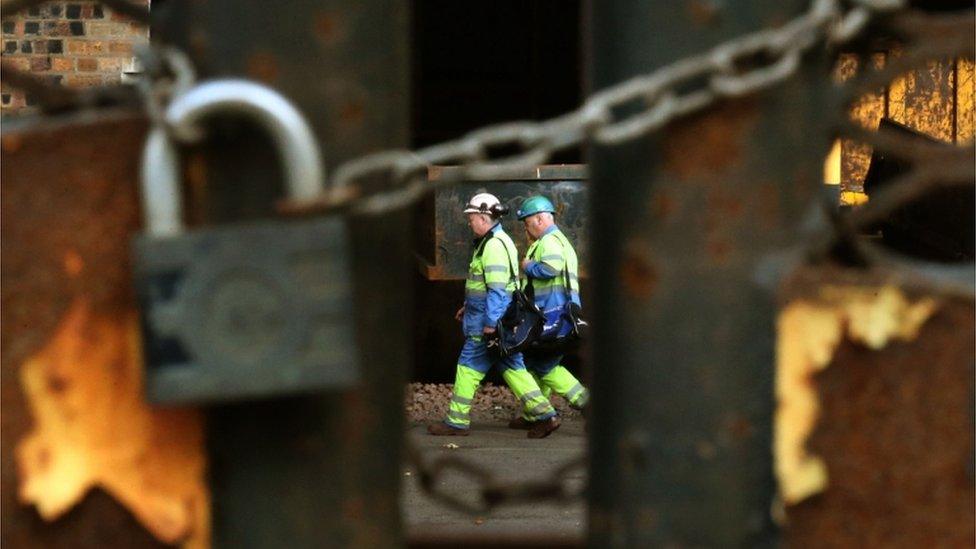
Tata announced that 270 jobs could go at its Scottish plants
Steel was once at the absolute heart of Motherwell. With the works at nearby Ravenscraig and Dalzell giving employment to thousands, nearly every home, every business, every life was in some way touched by it.
Now, with Ravenscraig long gone and Tata Steel announcing it will mothball its last two Scottish plants at Dalzell and Cambuslang, there are no longer any major steel employers left in Scotland. The industry is fast becoming consigned to the history books.
If the Scottish steel industry is not dead, it is certainly now on life support. The question is, can anything revive it?
Opened in 1872, the Dalzell steel works will now need to rely on government help or a buyout to have any future.
Tata have announced that 270 of its 400 staff in Scotland at Dalzell and Clydebridge will lose their jobs.
For Ross Clark, the joint union chairman at Dalzell, he deep down has hopes for a future of Scottish steel.
Standing outside the Dalzell plant after workers had been told the devastating news, I asked him if the news from Tata represented the death of Scottish steel. After pausing for a moment, he was defiant.
"It is the death knell for the industry here, but what we are hopeful of is a re-emergence of a Scottish steel industry. You can never give up hope.
"Dalzell is the best plate mill in the UK."
Ross is hoping a new buyer will come forward, or a new Scottish government task force will be able to find an answer.
First Minister Nicola Sturgeon has said her ministers are determined to fight for a future for the Scottish steel industry.
The task force will bring together representatives from bodies across the industry to keep Dalzell and Clydebridge open.
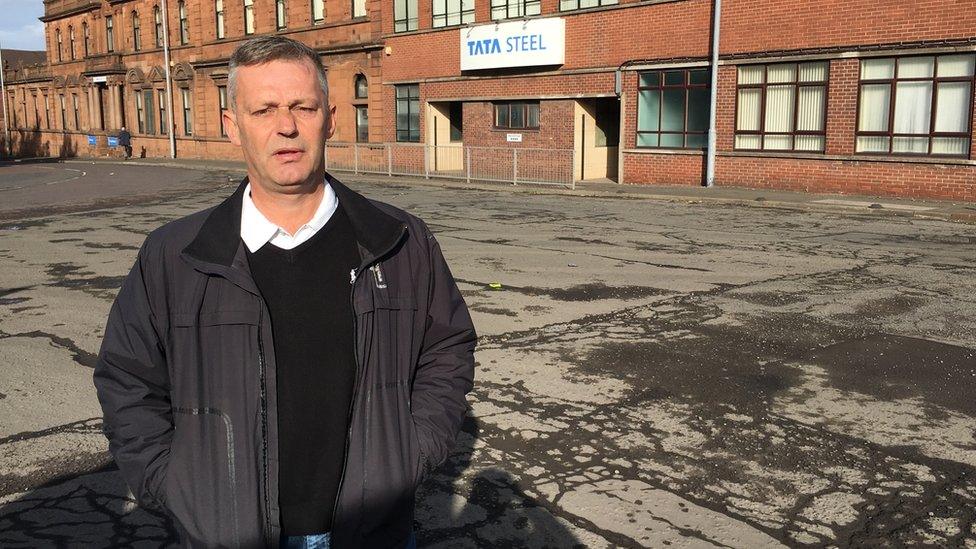
Nicky Shevlin fears this could be "the final nail in the coffin"
But for Nicky Shevlin, a Labour councillor in North Lanarkshire Council who represents the Community Union and has been employed at Dalzell for 38 years, the mothballing of Dalzell and Clydebridge could be "the final nail in the coffin".
He added: "We need get the best deal for the lads. We will be fighting to retain the jobs in there. There are lads in there who have just bought their house and have started a family. What is their future going to be?
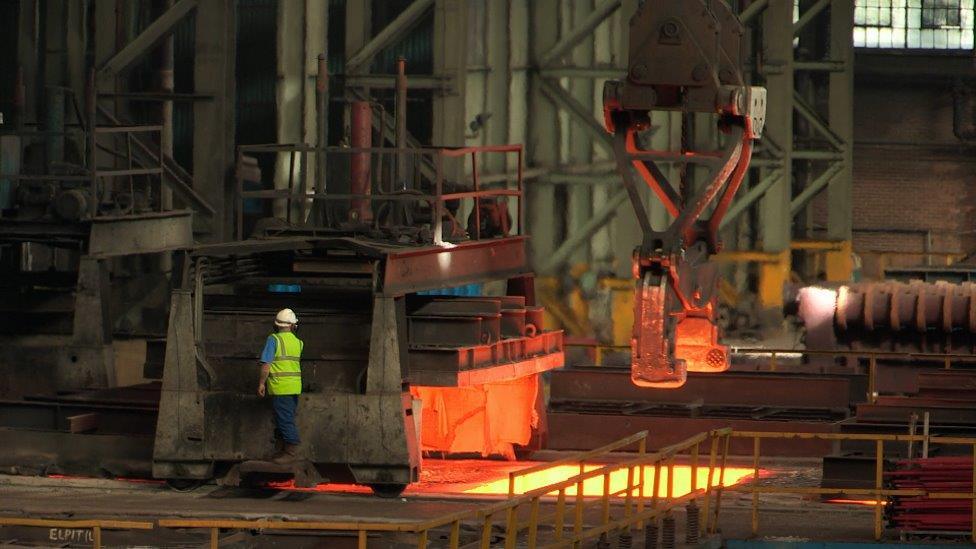
"As it stands today, there is no future for Scottish steel unless we get a buyer or one of the governments step in. The UK needs a steel making facility. We have got to be hopeful, but realistically I am not so sure. We are going to be hit with the same problems - the China factor, the energy costs, the business rates and the strength of the pound."
The "China factor" was cited by unions and Tata alike as a reason for the demise of the Scottish plants and the plant in Scunthorpe, which has also announced 900 job losses.
But the immense power of the Chinese economy is just the latest chapter in the demise of Scottish steel.
The industry has a proud history, with Ravenscraig - at one point Western Europe's largest producer of hot-strip steel and an employer of 13,000 people - at its heart.
With the closure of Ravenscraig, it became the largest brownfield site in Europe.
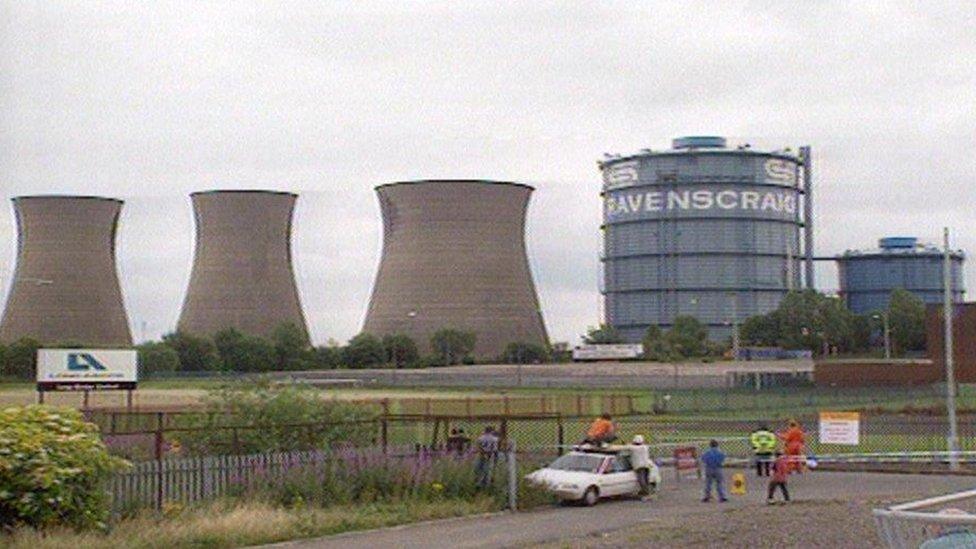
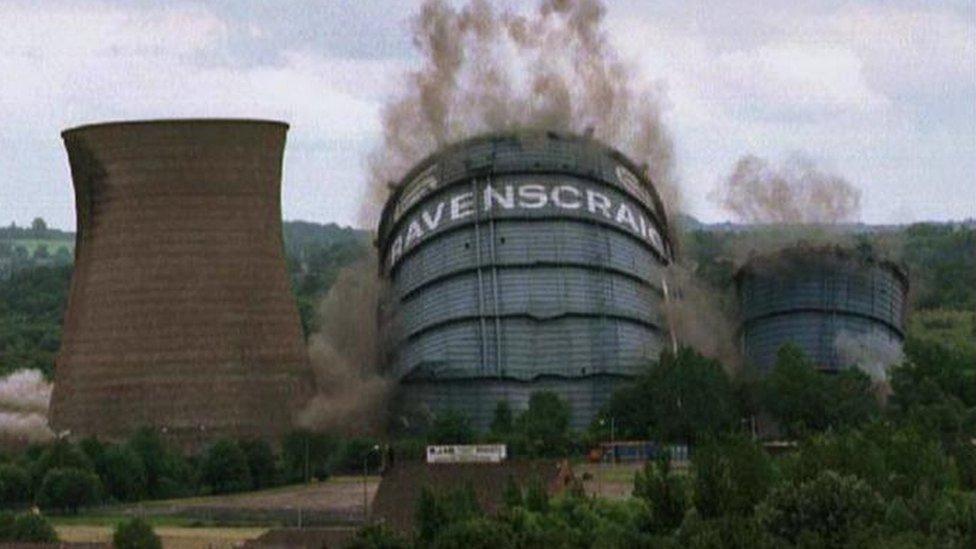
The once iconic chimneys of Ravenscraig were demolished after it closed
In Motherwell, many residents believe the town has never recovered from its closure in 1992. About 1,200 people lost their jobs and a few thousand more employed by local companies found themselves without work.
Union officials and locals in the town don't believe successive governments have done enough to help the industry since then.
For those who have been involved in it for their whole lives, the latest Tata announcement is a bitter pill to swallow.
Tommy Brennan started worked at Dalzell in 1947. After a stint in the navy, he rejoined in 1958 and was then at Ravenscraig for 31 years.
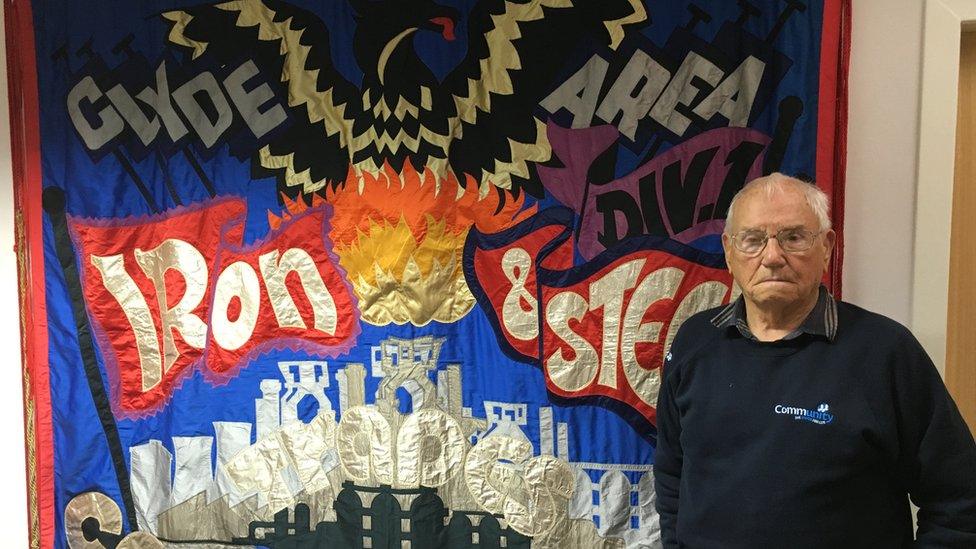
Tommy Brennan says the industry has always had its peaks and troughs
He remembers the days "when 30,000 people worked in the steel industry here". Tommy was one of the chief union voices during the campaign to keep Ravenscraig open.
He said: "The steel industry is an industry of peaks and troughs. Always has been. That is the way it has been all my life."
The 83-year-old would like to see work remaining at the plants, even if it was on a part time basis in the hope of a revival.
"It really is sad. When you work all your life in an industry, it becomes part of your family.
"Ravenscraig has been closed 20 odd years. Eighty per cent of that site is derelict. You have the college at one side, the fitness place in the middle, restaurant, private houses. The foxes and the rest of the wildlife are making good use of the rest of it. It breaks your heart.
"I think we are witnessing the death of what is left of the Scottish steel industry. Economically, it would be impossible to continue. During my years as a trade unionist, during those 12 horrible years that they tried to keep Ravenscraig open, you learned to be a realist. At the present moment, the odds are stacked against the plant at Dalzell."
With the last two major steel employers in Scotland becoming mothballed, everyone involved in the Scottish steel industry now wants action from Westminster and Holyrood.
But many here in Motherwell feel it may be too late.
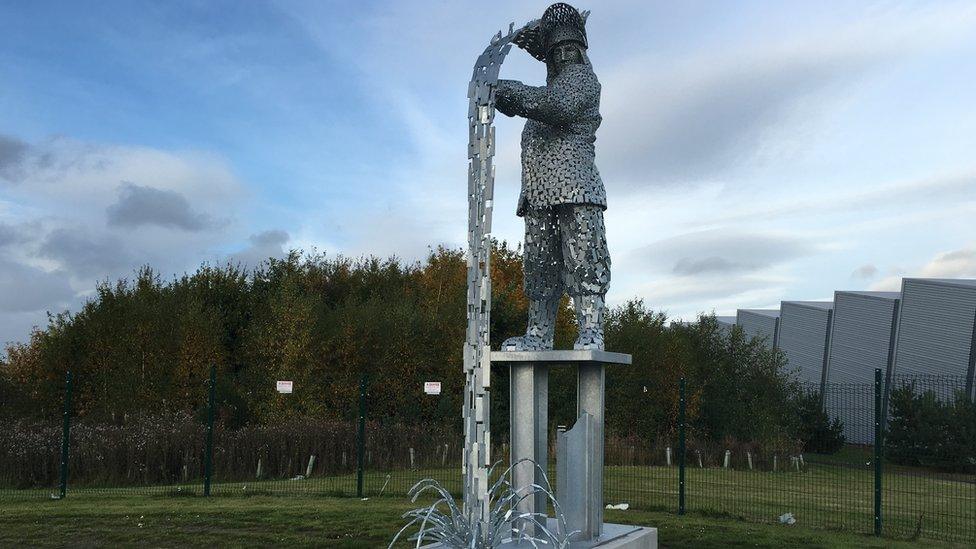
Andy Scott's Steel Man memorial at Ravenscraig sports centre marks the area's links with the industry
- Published20 October 2015
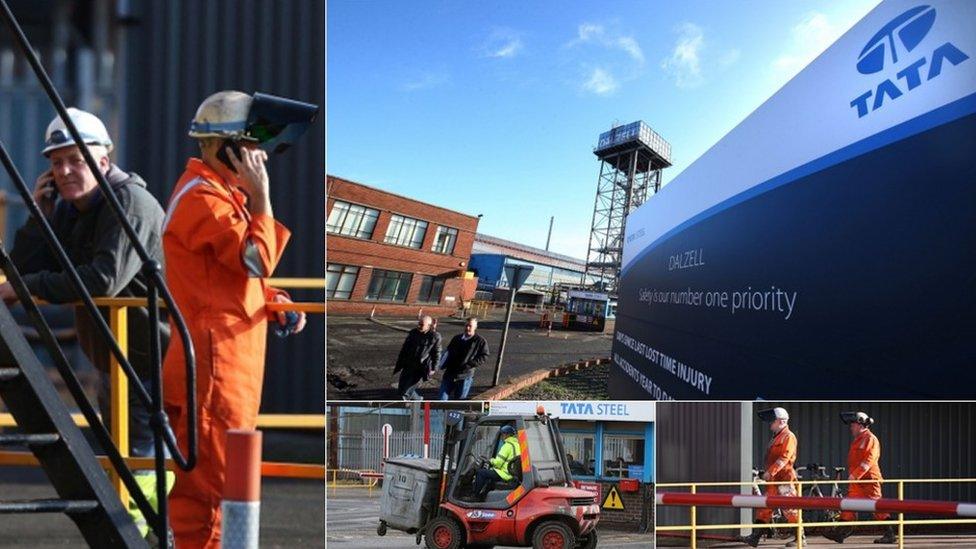
- Published20 October 2015
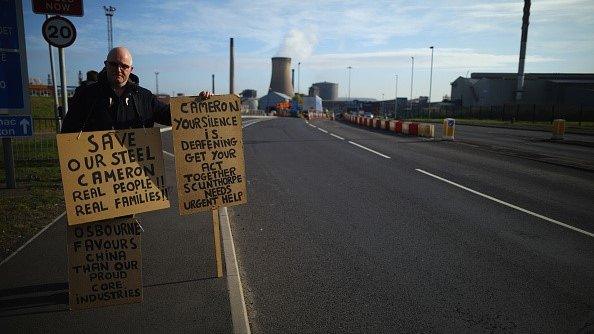
- Published20 October 2015